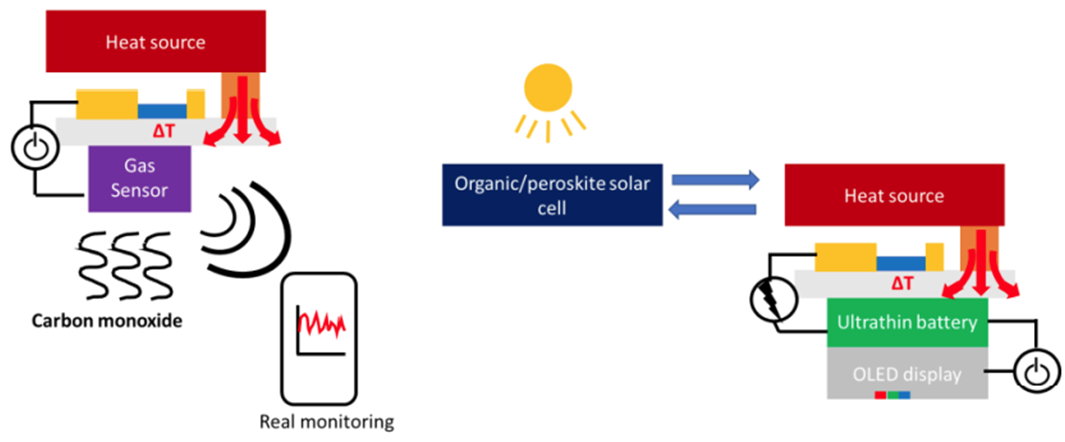Novel applications with organic thermoelectric modules
Dr. Shu-Jen Wang – Hector Fellow Karl Leo
This project aims at using modulation doped organic thermoelectric modules for energy harvesting in niche areas where module flexibility is key. We will develop novel device architectures based on modulation doped organic thermoelectrics to enable innovative applications.
Doping is a key technology in the semiconductor industry as this method enables the introduction of free charge carriers in the semiconductor systems with defined carrier types. Modulation doping circumvents the ionized dopant impurity that affects the carrier transport, which allows the carrier concentration and mobility to be independently maximized. As a result, this method is attractive for thermoelectric devices as the conductivity can be maximized without compromising the thermoelectric parameters and hence maximizing the thermoelectric figure of merit. While modulation doping is a widely used technique in inorganic semiconductors for high performance inorganic electronic applications, this method has not been well studied and exploited in organic semiconductors.
Here, we will focus on developing novel device prototypes using high performance modulation doped organic thermoelectrics for innovative applications. More specifically, we would like to develop self-powered sensor concepts for real time monitoring of environmental or health conditions as well as improving the energy efficiency of displays or solar cell modules using the thermoelectric modules.
Shu-Jen Wang
Technical University DresdenSupervised by

Karl Leo
PhysicsHector Fellow since 2013


